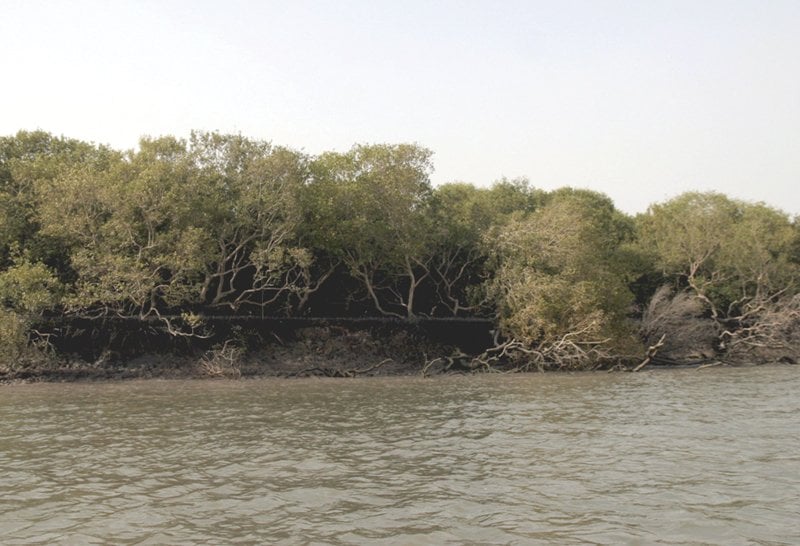Introduction
Karachi, the bustling metropolis of Pakistan, faces numerous environmental challenges that threaten its sustainability and the well-being of its residents. One of the city’s most significant natural assets, the mangrove forests, has been severely impacted by human activities and climate change. This article delves into the various environmental issues in Karachi, focusing on land reclamation, potential threats from natural disasters, the crucial role of mangroves, and the urgent need for conservation measures.
Land Reclamation Issue
Humans have significantly altered Karachi’s coastline through land reclamation, creating new land by filling the sea with soil and debris. This practice, aimed at accommodating the city’s growing population and infrastructure needs, has inadvertently damaged the natural defense systems that protect the coastline. Mangrove forests, which act as a buffer against sea storms and erosion, have been particularly affected, leading to increased vulnerability to environmental threats.
Potential Threats
The rising sea levels, a consequence of global warming, pose a severe threat to Karachi. Experts warn that a tsunami could strike the city within 20 minutes, giving little time for evacuation and preparation. The climate crisis has also escalated the frequency of natural disasters, including fires, floods, and cyclones, making Karachi more susceptible to these catastrophic events.
Mangrove Forests: An Overview
Historically, Sindh boasted the world’s largest protected mangrove forest. However, water scarcity and human encroachment have led to the destruction of vast mangrove areas, leaving only four species remaining. These forests are crucial for shielding the coastline from sea storms and serve as essential nurseries for marine life, supporting biodiversity and local economies.

Mangrove Forests as Nurseries for Marine Life
Mangrove forests provide a safe haven for a variety of marine species, offering shelter and breeding grounds. This biodiversity is vital for maintaining the ecological balance and supporting the fishing industry, which is a significant part of Karachi’s economy. Healthy mangrove ecosystems ensure a steady supply of fish and other marine products, benefiting both local communities and exports.
Effects of Climate Change
The years 2022 and 2023 have seen an uptick in extreme weather events in Karachi, including fires, floods, and dangerously high temperatures. These events, exacerbated by climate change, have degraded air quality and overall environmental health. Mangrove forests play a critical role in mitigating these effects by synthesizing carbon and reducing greenhouse gases, highlighting their importance in combating climate change.
Economic Importance of Mangroves
Beyond their environmental benefits, mangrove forests hold significant economic value. They contribute to the growing business of carbon credits, allowing countries and companies to offset their carbon emissions. Additionally, the mangroves support the fishing industry, providing livelihoods for many and contributing to marine exports. Protecting these forests is not only an environmental imperative but also an economic necessity.
History of Natural Disasters in Karachi
Karachi has experienced numerous natural disasters over the past century, including a devastating tsunami in 1945 and several cyclones. These events have weakened the city’s infrastructure, underscoring the need for robust protective measures. The historical context of these disasters highlights the ongoing vulnerability and the need for proactive planning and resilience building.
Conservation Measures
To mitigate the impacts of the climate crisis and safeguard Karachi’s future, immediate and effective conservation measures are essential. Planting more trees in coastal areas can help restore natural barriers and enhance biodiversity. Protecting ancient forests and expanding mangrove cover are crucial steps in this direction. Moreover, engaging local communities in these efforts ensures sustainable management and long-term success.
Conclusion
The environmental issues facing Karachi require urgent and concerted efforts to mitigate their impacts. Protecting and restoring mangrove forests is a critical component of this strategy, providing both ecological and economic benefits. Local communities must play a central role in managing natural resources sensitively and sustainably. Without timely action, Karachi will continue to face severe threats from natural disasters and environmental degradation.
